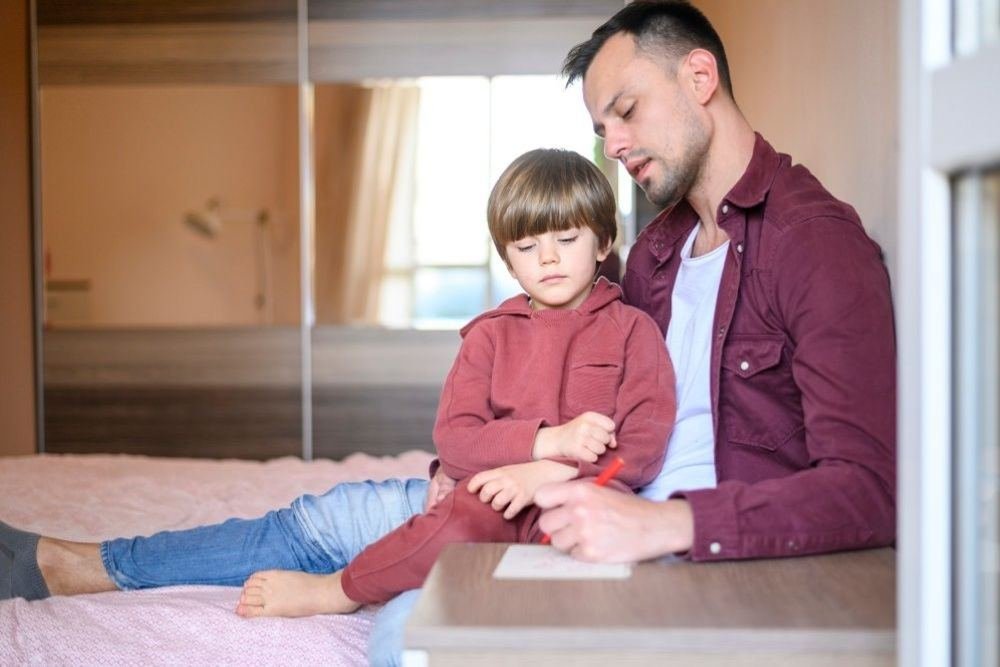
Divorce doesn’t have to be a battle waged in court. For couples seeking a more amicable and controlled way to dissolve their marriage, collaborative divorce offers a compelling alternative to traditional litigation. This client-centered approach prioritizes respectful communication, mutual problem-solving, and the well-being of the entire family.
At LforLaw, we believe in empowering our clients with options. If you’re looking for a path through divorce that minimizes conflict and maximizes control over the outcome, collaborative divorce may be the right choice for you.
Understanding the Philosophy of Collaborative Divorce
Collaborative divorce is a voluntary, out-of-court process where both spouses and their attorneys commit to resolving their issues respectfully and without resorting to litigation. The core principle is a shared commitment to transparency, honest communication, and finding solutions that meet the needs of both parties and, most importantly, their children.
A key element of collaborative divorce is a written agreement signed by both spouses and their attorneys. This agreement typically includes a “no-court” clause, meaning that if either party decides to litigate, their collaborative attorneys must withdraw, and both spouses must find new legal representation. This unique provision creates a strong incentive for everyone to remain committed to the collaborative process.
The Collaborative Team: Beyond the Lawyers
In a collaborative divorce, you’re not just working with your respective attorneys. A multidisciplinary team of professionals often joins the process, providing specialized expertise to help you navigate the various aspects of your separation:
- Collaborative Attorneys: These lawyers are specifically trained in the collaborative process. Their role is to advocate for their clients’ interests while upholding the principles of cooperation and finding mutually agreeable solutions. They will guide you through negotiations and ensure you understand your legal rights and obligations.
- Financial Neutral: A neutral financial professional, such as a Certified Divorce Financial Analyst (CDFA), can help gather and analyze financial information, create projections, and explore various settlement options without bias. They can provide clarity and help you make informed decisions about asset division, support, and tax implications.
- Divorce Coach: A mental health professional who specializes in divorce can act as a neutral coach for both individuals and the family. They help facilitate communication, manage emotions, develop co-parenting strategies, and keep the process focused on the well-being of the children.
The involvement of these neutral professionals can lead to more comprehensive and tailored solutions than a purely adversarial legal process.
The Collaborative Divorce Process: What to Expect
The collaborative divorce process typically involves a series of meetings where both spouses and their collaborative team work together to identify issues, gather information, explore options, and reach agreements. While the specifics can vary, the process generally includes these steps:
- Signing the Participation Agreement: Both spouses and their attorneys formally agree to the collaborative process and the “no-court” clause.
- Information Gathering: Full and transparent disclosure of all relevant financial and personal information is crucial. The financial neutral often plays a key role in organizing and analyzing this data.
- Identifying Issues and Interests: The team helps identify the key issues that need to be resolved (e.g., property division, child custody, support) and, more importantly, the underlying needs and interests of each spouse.
- Generating Options and Negotiating Solutions: The team collaboratively brainstorms potential solutions that address the needs and interests of both parties. Negotiations are focused on finding mutually acceptable outcomes.
- Reaching Agreements: Once agreements are reached on all issues, they are documented in a legally binding settlement agreement.
- Finalizing the Divorce: Your collaborative attorneys will then file the necessary paperwork with the court to finalize your divorce based on the agreed-upon settlement.
Pros and Cons of Collaborative Divorce
Like any legal process, collaborative divorce has its advantages and disadvantages:
Pros:
- Client-Centered: You have more control over the process and the outcome.
- Less Adversarial: Focuses on cooperation and minimizing conflict, which is especially beneficial for families with children.
- Confidential: Discussions and information shared within the collaborative process are generally kept private, unlike public court records.
- Tailored Solutions: The involvement of neutral experts can lead to creative and customized solutions that meet the specific needs of your family.
- Preserves Relationships: The respectful approach can help preserve a more positive co-parenting relationship after the divorce.
- Potentially Less Expensive: While you’re paying for a team of professionals, resolving issues efficiently out of court can sometimes be less costly than prolonged litigation.
Cons:
- Requires Commitment: Both spouses must be genuinely committed to the process and willing to negotiate in good faith.
- May Not Be Suitable for High-Conflict Cases: If there’s a significant power imbalance or a history of abuse or extreme unwillingness to cooperate, collaborative divorce may not be appropriate.
- Attorneys Must Withdraw if Litigation Occurs: If the collaborative process breaks down and litigation becomes necessary, you will need to hire a new attorney and start the legal process anew.
Is Collaborative Divorce Right for You?
Collaborative divorce is a viable option for couples who are willing to work together, communicate openly, and prioritize finding mutually acceptable solutions. If you value privacy, control over the outcome, and a less adversarial approach to ending your marriage, it’s definitely worth exploring.
At LforLaw, our experienced collaborative law attorneys are dedicated to guiding you through this respectful and constructive divorce process. Contact us today for a consultation to discuss your situation and determine if collaborative divorce is the right path for you and your family.





